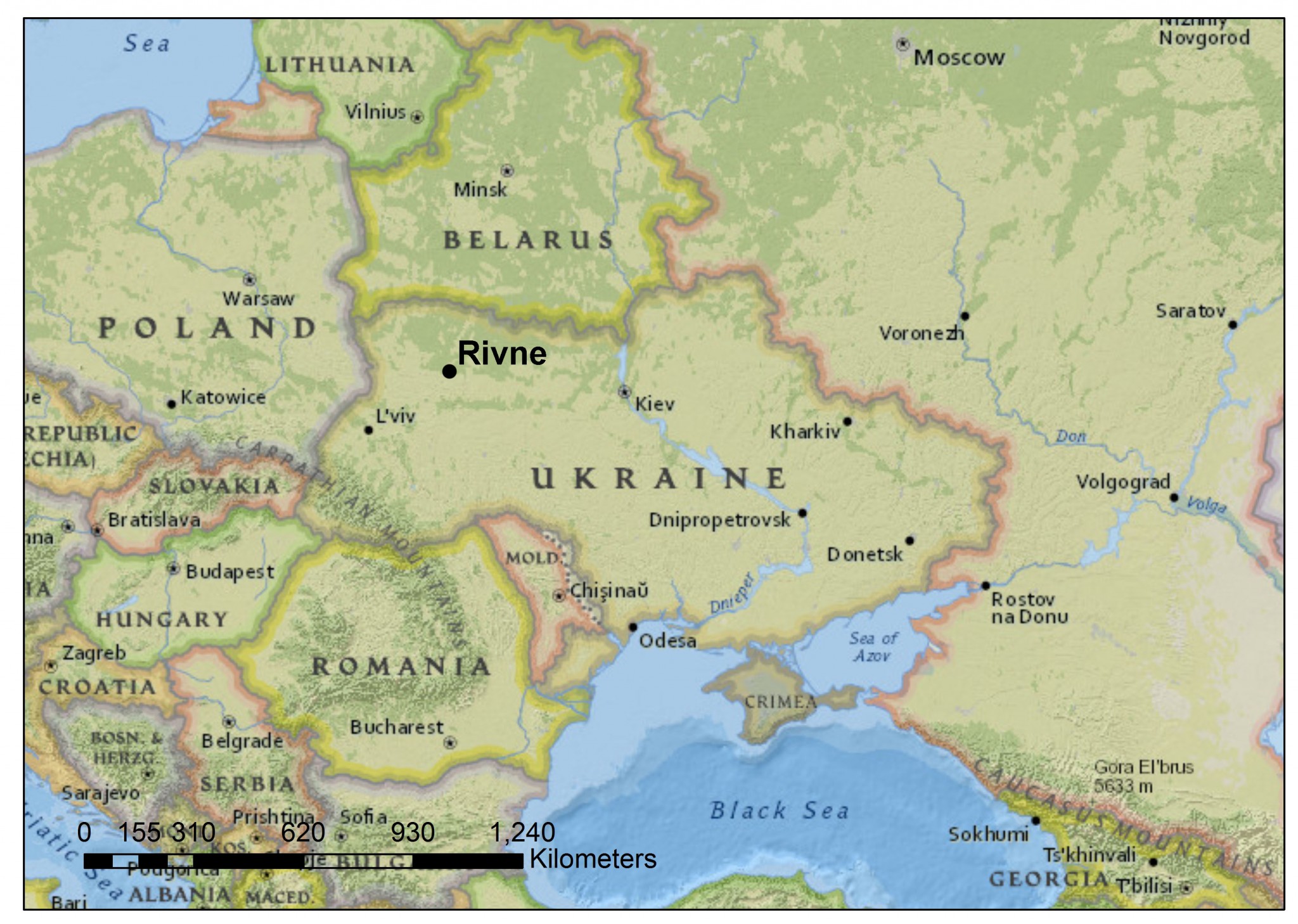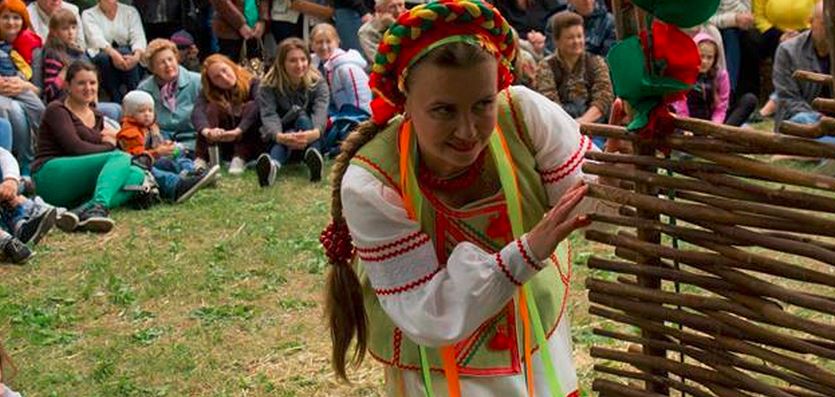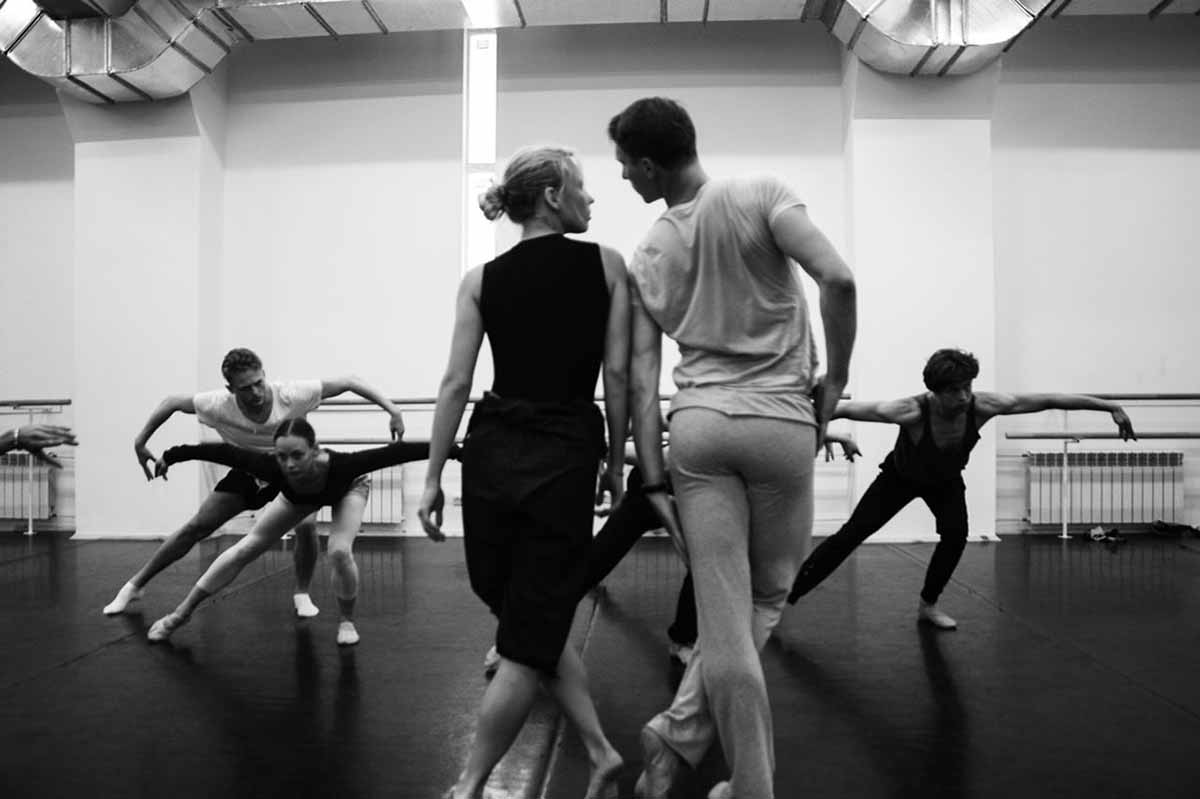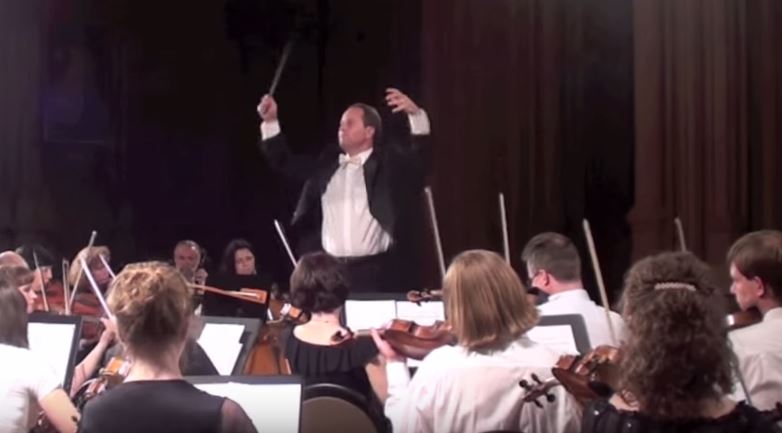War, Crimea, Oligarchs, Right Sector. Consuming mainstream European news, what else could one possibly expect from an article dealing with Ukraine these days? Until now, not a lot. Yet now two years since the annexation of Crimea the articles are getting sparser and the friendly woman at the Ukrainian Crisis Media Centre explains that the interest of foreign media in war-related stories coming out of Ukraine is declining. The story has been told. Yet there is much more to the changes Ukraine is undergoing than fighting in the East. Ukraine is not just its crisis. And it is also not just Kiev, its capital and focus of almost every story a European gets to read - if he gets the luxury of reading something about the country that is not directly related to happenings in the East or Crimea.
For one, Ukraine is also culture. And it is also Rivne. Rivne? Yes Rivne, a medium-size, rather ordinary city in its Western part, and truly not the first place anyone would associate with culture in Ukraine. Yet it is a city that embodies what Ukrainians wants for themselves. Rivne was one of three main cities that supported the Maidan protests, with thousands occupying the city square to demand a different and new future for their country stressing values such as self-direction, benevolence and universalism.

This movement has not been restricted to the political sphere. It has also shaped the cultural landscape of this city which has subjected itself to supporting the patriotic movement towards a new Ukraine. Radio Trek, one of Rivne’s most popular stations, stopped playing Russian songs. Rivne Regional Museum features an exhibition on everything related to Maidan, containing pictures, equipment, information. Rivne Music and Drama Theatre committed itself to playing only Ukrainian or topical plays, be it All My Sons by Arthur Miller or plays by local Ukrainian playwrights. For each theater ticket UAH 30 (about $1.50) are donated to the people fighting for their country in the East.

Also young people involved in the scene have embraced a renewed focus on Ukrainian culture which can be discovered in the most unlikely places. Entering a massive bloc of concrete that evokes the reminiscence of the Soviet Union, we find ourselves in the Palace of Kids and Youth that provides culture education in various disciplines. The three students we met are participating in performing arts classes and all agree that theater is a mirror for society and therefore plays a very important role at this point in time.
Responsibility, Nikolai who is the youngest of them emphasizes, is the most important value they want to convey to the people.
These days they perform plays that evoke self-reflection, such as Sartre’s No Exit and plays by Ukrainian playwrights like Artem Vyshnevskyi that describe inner feelings of Maidan activists. Back then, during the protests, their center organized street performances every Sunday collecting over $2300 in the process.
Rivne’s youth has embraced the spirit of Maidan - this feeling is confirmed when we leisurely stroll through Youth Park one evening and stumble upon a gathering of around sixty young people, sitting in a circle, enthusiastically singing Ukrainian songs. Five guys in front are playing guitar, setting the rhythm and animating the group. We want to find out who they are. It turns out, they are part of Jaskravo, a group of young students who are actively shaping the cultural landscape of the city.

Among them is Roman, 19, a reserved but extremely friendly guy who studies economics in Kiev but calls Rivne his hometown and volunteers his time as a project manager to the volunteer organization that has had over thousand people attending their events over the last five years. Their aim is to bring young people together and empower them to be active members of society.
True to his word, Roman makes it possible for us to get to know seven other members of their group the next day. All of them are impressive young people. Within Jaskravo they not only organize nights of singing traditional songs, they run a film club, literature events, manage their volunteers and engage in marketing. Several of them have taught themselves languages online, a few have attended summer schools abroad and all of them sincerely believe that young people need to be active if they want a Ukraine as envisioned in the Maidan movement. Everything Jaskravo does adheres to and is aligned with the organisation’s three core values: openness, cooperation and responsibility. Roman explains that especially responsibility is an important value:
We think it is key to encourage people to realize that they are responsible for themselves and the future of society.
All of them were involved in Maidan in one way or another. Roman was out there in Kiev, one of the other guys, Oleksandr, became press secretary of the movement in Rivne. Did Maidan change what they did? Not really, they have been doing what they are doing since 2010. „Its main result was that people had less time to work for Jaksravo,“ Roman smiles. Did it make the local government more supportive? No, that also did not happen. Jaskravo would like to cooperate but there is no interest. In fact, their usual gathering spot for singing events has been claimed by local authorities, only to host their own, almost identical, events. Neither university structures nor the city seem to adequately support young cultural groups that act out of their own initiative.
Still, Rivne’s youth is more motivated than ever to embrace culture as a means to help young people develop into active citizens. When in a city like Rivne one meets young people who are that responsible and engaged, one realizes that there is more happening in Ukraine than war. The Maidan movement has mirrored what they have been thinking for a while: Ukraine, as any country, will eventually be a reflection of its people.





